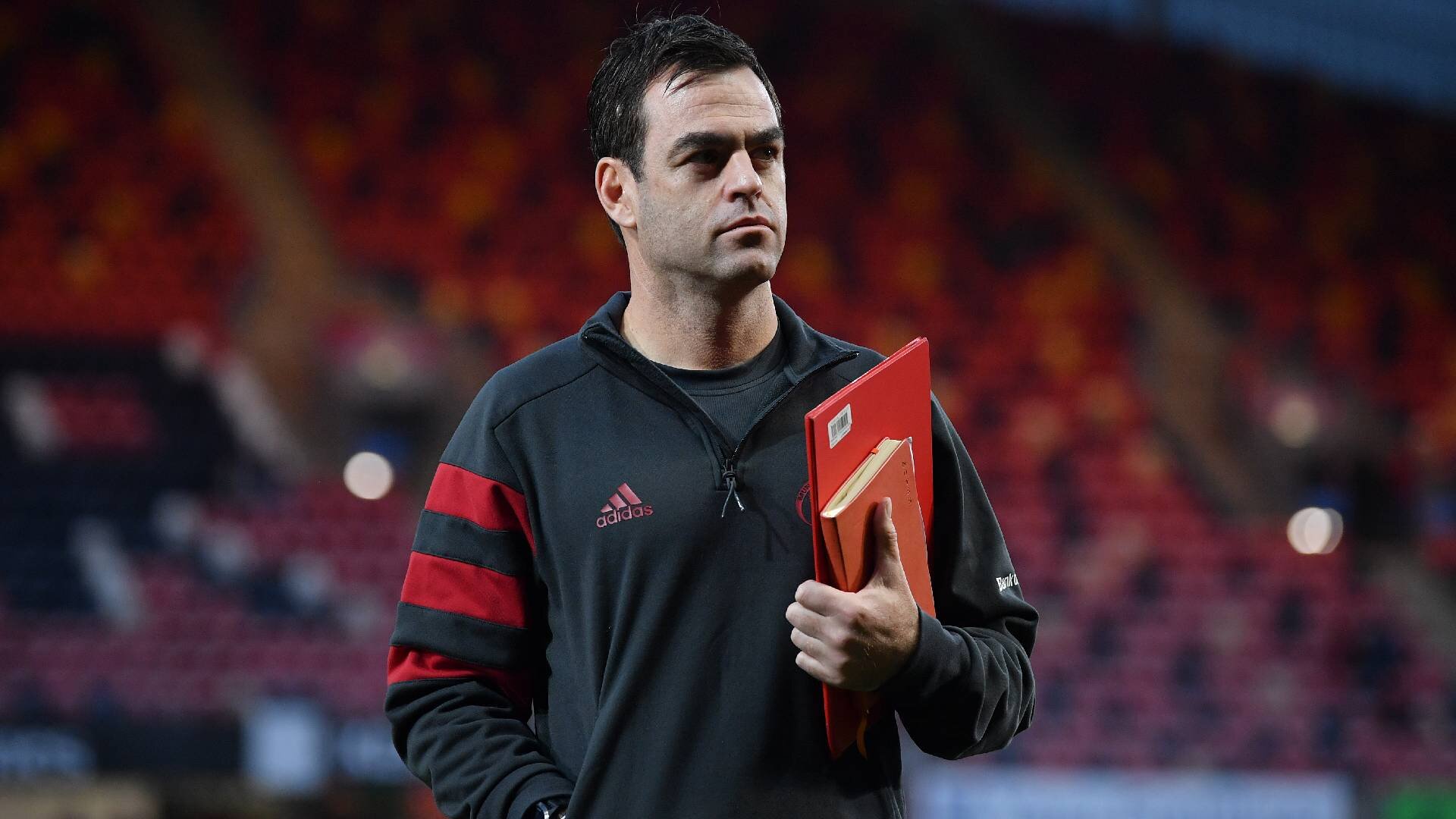Rampant Munster stroll to comprehensive victory over Southern Kings

Munster moved back to the top of Conference B in the PRO14 as they ran in 10 tries against Southern Kings in a 68-3 victory at Irish Independent Park.
Arno Botha scored a hat-trick of tries, Shane Daly scored a pair in the second half with man-of-the-match John Hodnett, making his first start for the province, also crossing.
The Kings did not help their cause by having two players in the sin-bin, one in each half, but the South African side had no answer to Munster’s pace and power.
Continue reading below…
The home team had the bonus point wrapped up by the interval with two tries from Botha and one apiece from Calvin Nash and Jack O’Donoghue helped Munster to their biggest win in the PRO 14.
Munster opened the scoring after eight minutes with a try from number eight Botha as he surged off the back of a penalty scrum to score under the posts following the sin-binning of Southern Kings full-back Andell Loubser. JJ Hanrahan converted for a seven-point lead.
Kings replied with a Demetri Catrakilis penalty on the quarter-hour mark but Munster were back for a second try after 23 minutes.
A switch move from Dan Goggin under the posts was fed to Mike Haley, who in turn played in Nash for a try. Hanrahan added a difficult conversion to make it 14-3.
Eager to back on the horse was our Stuart! https://t.co/V77mdsUZEJ
— RugbyPass (@RugbyPass) February 14, 2020
Botha was in for a second after 29 minutes after poor defence from Kings saw the number eight score under the posts with Hanrahan again converting.
Kings did apply pressure in the 10 minutes before the interval but were not able to convert it to scores.
The home team had the last say of the half with a O’Donoghue try from a clever chip through by Hanrahan. Hanrahan converted for a fourth time to leave the score at 28-3 at the interval.
Johann Van Graan’s side made it five tries after 50 minutes with Hodnett scoring under the posts after he was at the end of a counter attack started by full-back Haley.
Scrum-half Neil Cronin made it six four minutes later after a blindside break by Goggin with Hanrahan converting that and Hodnett’s earlier score to leave it 42-3
Shane Daly then made the most of a poor pass in the Kings deadball area and pounced to score Munster’s seventh try with substitute Ben Healy converting.
Goggin made it on to the scoreboard next and Botha wrapped up the scoring with his hat-trick with three minutes remaining.
– Press Association
In other news:





































































